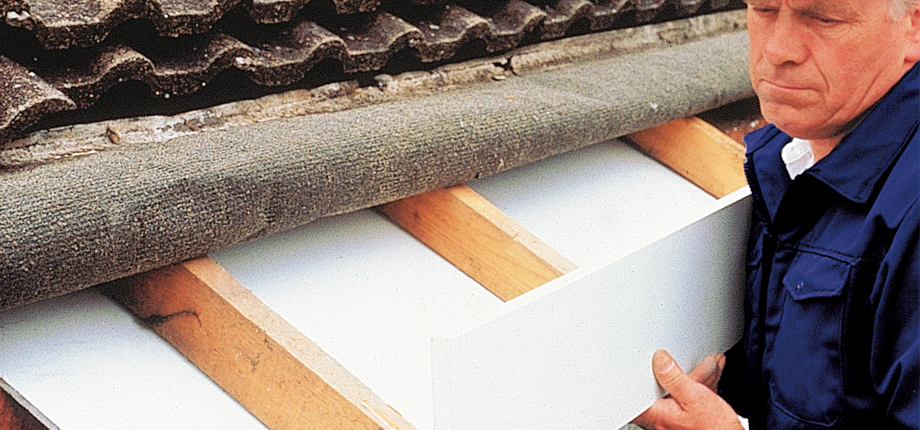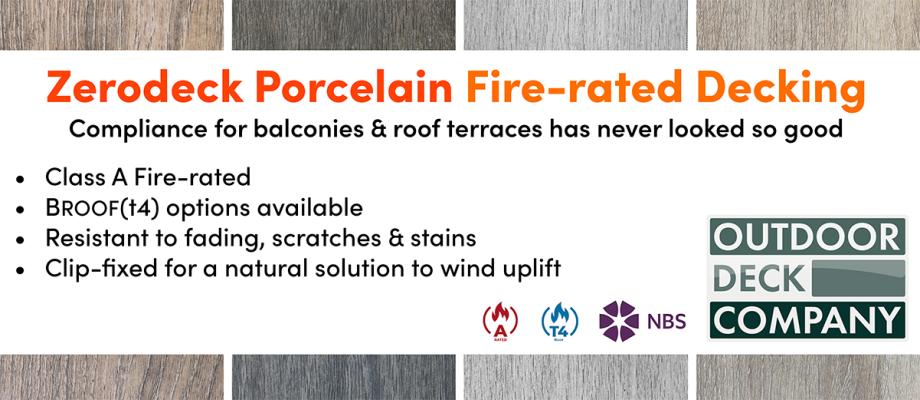For Roofline and rainwater goods specialists, Swish Building Products, environmental responsibility goes hand in hand with efficient manufacture, supply and distribution. Housing Association Magazine takes a look.
The basic design principles of UK housing stock have changed very little over the last hundred years or so. Our favourite style is a rectangular masonry box topped by a pitched, tiled roof with a network of troughing and pipework to channel away the large quantities of rainwater that characterise the country’s climate.

Like it or not, “an Englishman’s home is his castle” and until some major innovation changes his mind, the preference for a pretty, brick-and-tile box with roses around door, will surely remain!
Over the years, frequent changes to regulatory policies have done much to improve the standards of house construction in terms of materials, amenities and energy efficiency. Furthermore, despite the demise of the Decent Homes Policy, a great deal has been achieved with environmental issues such as sustainability, long term maintenance and carbon neutrality.
Where the roof meets the vertical walls, the area known as the Roofline, construction innovation has also moved on significantly.
Traditionally, Roofline construction was dominated by timber – used for fascias, soffits, weatherboarding and so on. It was a simple, easy to manipulate material that was readily available and low in cost. It also ticked the sustainability box from an environmental perspective – up to a point.
The fact that it deteriorates rapidly if not installed correctly and requires re-painting every four to five years to prevent inevitable decay and eventual complete replacement, was frequently ignored.
A more practical and environmentally sound solution for these harsh environmental conditions is cellular PVC.
Cellular PVC has similar working characteristics to timber, it is installed using the same tools and skills but is far more durable than timber, requires no maintenance and will last the whole life cycle of the building.
What’s also important is that, unlike timber, Cellular PVC can be fully re-cycled at the end of its service life. So far, you would expect that it’s game, set and match to PVC and the end of timber as a roofline material.
But back to reality, as timber will always have its die-hard supporters.
The service life of a material is an important consideration but what is just as crucial in today’s eco-focussed world are factors such as efficient use of energy and natural resources, environmental performance in the manufacturing process and driving down waste.
Here, one company which has been almost evangelical in its approach to making its manufacturing and distribution operations one of the most efficient in the industry, is Swish Building Products.
Swish, part of the Epwin Group, manufactures Cellular PVC Roofline products and rainwater drainage systems, supplying new-build and refurbishment projects across both public and private sector.
In this competitive commercial market where creating a clear differentiation seems to be important; being more efficient, creating less waste and being more environmentally responsible and delivering the attendant product quality gains can add real value to a brand.
Swish has made real progress here and since achieving ISO14001 Environmental Management Certification in 2007, they have worked continuously to improve the environmental performance of their manufacturing and distribution operations.
Benefits have included significant reductions in energy inputs, water usage and scrappage rates during manufacture. Marked improvements in transport efficiency, better levels of service and reductions in fuel usage have also been realised.
This attention to environmental detail has also translated into consistent improvements in quality stability, which itself is part of the waste reduction initiative.
Swish recognised how important efficient use materials and energy resources had become, with greater regard to the environmental effects that flow from their use. In light of this, Swish conceived a corporate Resource Use Policy in 2014.
The Swish Resource Use Policy sets out the Company’s commitment to reducing and refining its use of resources based on the principles of Vinyl Plus, the European PVC industry’s own commitment to meaningful environmental action over the period to 2020.
In 2015, Swish then achieved ISO50001 Energy Management Certification, to further demonstrate its commitment to continuing environmental improvement.
Swish’s environmental achievements during 2014 and since 2008 look like this:
| Emissions of Greenhouse Gasses (GHG) from operation | Elements | 2015 Actual | Change since 2008 |
| Direct Impacts Fixed (Production) | Electricity, Gas, Heater Fuel | +2.3% | -30.55% |
| Moving Impacts (Transportation) | Transport Vehicle Fuel, LPG | +19.7% | -3.5% |
| Combined Fixed and Moving | -5.7% | -26.1% | |
| Water | Consumption of water | -26.6% | -71.9% |
During this period Swish also became the first plastics company to achieve BES6001 Responsible Sourcing certification in order to engage with its suppliers and ensure their capabilities in environmental matters.
So what? You might say. Well, quite a lot, actually. In the highly competitive world of construction materials, manufacture and supply, production and distribution efficiency are King.
Minimising waste and employing efficient methods of production to make products with long a working life and next to no maintenance requirement, creates something of a virtuous circle.
Combine this with the wider programme of activities that the Swish Resource Use policy holds for the future; including short, medium and long term resource usage, alternate material sourcing, staff, supply-chain and installer engagement and a system that allows the return of damaged or misshapen boards for recycling, it all bodes well for the Company.
The Code for Sustainable Homes may be a thing of the past but its spirit continues to guide important principles for the housebuilding industry: Responsible use of raw materials, efficiency in production and minimal environmental impact.
Full details of the Swish’s Environmental Performance and Policies are available on the Swish website, www.swishbp.co.uk.
- Log in to post comments















